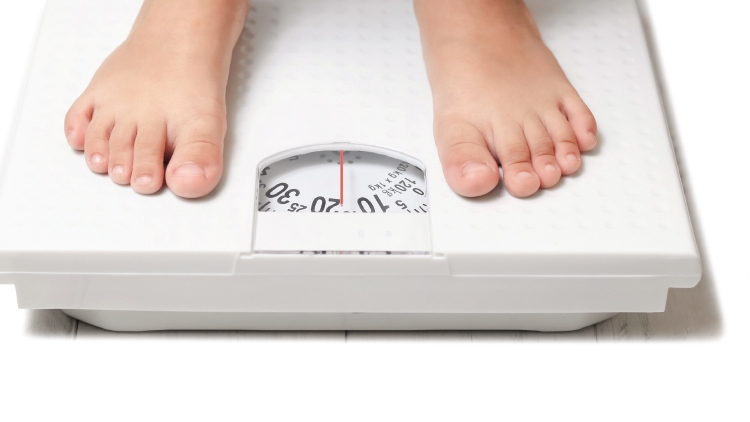Are We Weighing Our Children Too Often?
Babies and children, like adults, come in many shapes and sizes and these differences are to be celebrated. While your child’s growth may be affected by what they eat and drink, genetic factors are also very important. From the moment they are born, and at every well child visit thereafter, your child’s healthcare provider will take measurements of your child and use growth charts to assess their growth pattern over time.
In Canada, it is recommended that your child’s growth be checked by measuring not just weight, but also length/height and head circumference at the following times:
- At birth
- Within 1-2 weeks after birth
- At 1, 2, 4, 6, 9, 12, 18 and 24 months
- Once per year for children over 2 years of age
Growth checks done at the right time give you and your healthcare provider information to know if your child is growing well. It’s usually not necessary to have your child weighed in between these recommended times. Unfortunately, it is the norm for a lot of unnecessary attention to be placed on a child’s weight. Weighing your child more often can create too much attention on weight. It can be harmful to continue with this.
There are many other aspects of child development besides weight that can be considered to ensure your child is growing and developing well. In the early days, paying attention to the number of wet and dirty diapers is important to assess if babies are being fed enough.
Why shouldn’t you check your child’s weight more often?
It may cause worries about growth.
- If weight checks are done too often, it can look like your child isn’t growing well. Week to week fluctuations are often not meaningful. Weight and height generally follow a pattern of change over time.
It may lead some parents to question their breastmilk supply.
- A breastfeeding parent may unnecessarily offer supplements if they think their child isn’t growing well.
It may lead to starting solid foods before baby is ready.
- Babies do not need solid foods until about six months. If solids are started too early, babies may not get the proper nutrition they need.
It may cause you to pressure your child to eat more or less food.
- Trying to control how much a child eats can lead to long-term feeding problems.
- Allow your child to choose how much to eat based on their hunger and fullness cues, not their weight.
If there are feeding or health concerns, your healthcare provider may complete growth checks more frequently.
Contact your healthcare provider if you have any concerns about your child’s growth. You can access telephone support from MLHU Public Health Nurses by calling 519-663-5317 or you can reach Registered Nurses and Registered Dietitians by dialing 811 for Health Connect Ontario.
For more information:
Best Start. (2020). Signs that Feeding is Going Well.
https://resources.beststart.org/wp-content/uploads/2018/12/B03-E_BF_desk_reference_2020.pdf
Dietitians of Canada. (2014). Growth Charts. https://www.dietitians.ca/growthcharts
Nipissing District Developmental Screen (NDDS). (2018). Looksee Checklist. https://www.lookseechecklist.com/Default
Middlesex-London Health Unit. (2022). Baby Food. https://www.healthunit.com/baby-food
Submitted by Ginette Blake BASc RD on behalf to the Middlesex-London Community Early Years Partnership














